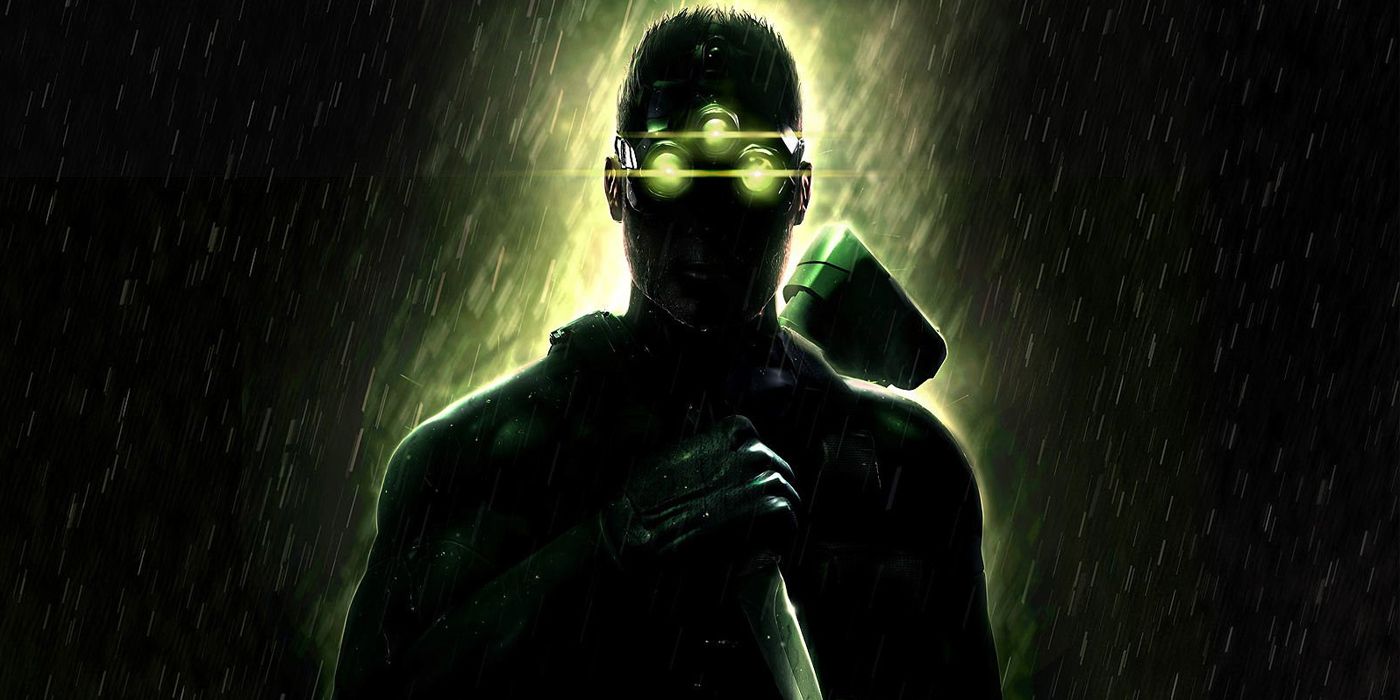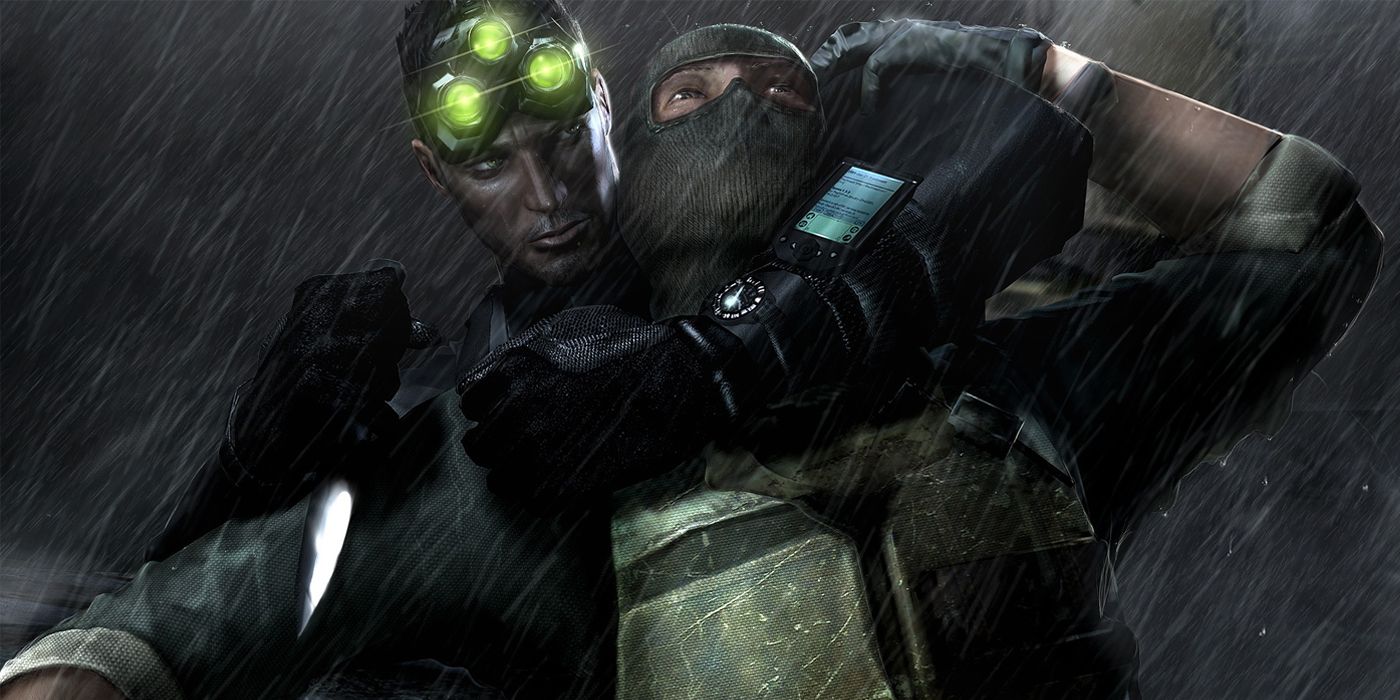Ubisoft has confirmed that the story of Tom Clancy's Splinter Cell is being rewritten for modern audiences as part of its upcoming remake. The remake of the first Splinter Cell game was announced earlier in December 2021 after the franchise lay dormant for nearly eight years, with series protagonist Sam Fisher only making cameo appearances in other Ubisoft titles such as Rainbow Six and Ghost Recon to try to appease the fanbase.
When Tom Clancy's Splinter Cell was released back in 2002, it was intended as competition for the other major stealth title of the time, Metal Gear Solid. However, Ubisoft opted to take a more grounded approach to espionage when compared to its rival, eschewing some of the more sci-fi elements Metal Gear Solid was known for, such as genetic engineering and the franchise's iconic mechs. Splinter Cell's story was set in the near future (for the time) and saw Sam Fisher initially investigating the disappearance of two CIA operatives, which leads to uncovering a conspiracy and nuclear threat in Georgia.
A new job listing for a Splinter Cell Scriptwriter position at Ubisoft (via Tech4Gamers) has stated that the Splinter Cell remake would be using the classic game as a "foundation" and that the team will be "rewriting and updating the story for a modern-day audience." The listing then went on to say that Ubisoft wants to keep the spirit and themes of the original Splinter Cell while exploring the characters and the world to make them more authentic and believable while still delivering a compelling narrative experience for a new audience.
The Splinter Cell Remake Is Being Built From The Ground Up
When the Splinter Cell remake was announced last year, producer Matt West seemed to indicate that it was primarily going to be a visual and gameplay update being built in the impressive Snowdrop Engine; there was no mention of any change to the story at the time. When the first Splinter Cell was released, its lighting and stealth mechanics were fairly revolutionary for gaming and fully optimized the then powerful Xbox hardware before being ported to other consoles such as the PS2 and Nintendo Gamecube, with some tweaks due to the limitations on those devices. Given how far technology has progressed in gaming since the last entry in the series, Splinter Cell: Blacklist in 2013, it makes sense for Ubisoft to build the new title from the ground up to fully utilize these new assets.
While the news of changes to Tom Clancy's Splinter Cell's story may worry some fans of the series, the extent of these changes remains unclear at the moment, as Ubisoft’s job description does not go into too many details. This decision does make sense when taking into consideration what modern audiences expect from AAA titles. Although at the time of its release, Splinter Cell was praised for its story, and great performances from the likes of Michael Ironside as Sam Fisher, games are now allowed to tell much larger stories, and it only makes sense that Ubisoft would look to expand upon what came before with its remake, especially if the studio is hoping it could relaunch the franchise.
Sources: Ubisoft (via Tech4Gamers)


